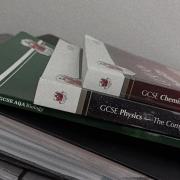
Plastic-Eating Bacteria: the solution to pollution
The substantial rise of takeaway boxes and masks used during the Covid-19 pandemic has brought the world's plastic waste crisis to attention. It is estimated by the World Economic Forum that Earth is on track to have as much plastic in the oceans as fish weigh by 2050.
However, there are new hopes of preventing further pollution as the bacteria, Ideonella sakaiensis, was found in Japan back in March 2016. This bacteria is capable of decomposing plastic, particularly the kind of plastic called PET, commonly used to make bottles. At that time, it was difficult to confirm the effectiveness of this bacteria in large-scale commercial plastic wastes but recently, new plastic-eating microorganisms have been discovered. This proved that, through evolution, more organisms have adapted to be able to decompose plastic. For example, a scientist in Pakistan reported a fungus able to degrade plastic in 2017 and in March 2020, German scientists identified new strains of plastic-eating bacteria that grew in the soil from plastic waste sites in Leipzig.
Just 6 months ago, scientists in the UK and the U.S. combined two different plastic-eating enzymes to produce a 'super enzyme.' the first use of these enzymes for large-scale biodegrading is soon to be tried, potentially leading to a revolution in handling pollution. There are still many challenges ahead with discussions involving the dangers of releasing genetically modified organisms and the possibility that biodegraded plastics risk the release of chemical additives that are normally stored safely in un-degraded plastic. Therefore, although there are signs of progress, we must continue to reinforce and control the use of plastics in our daily lives as individuals.
Rosa Skeete, a student at Wimbledon High says, 'Although new discoveries might come up, we must take more action ourselves as global warming is happening as fast as ever.'
Plastic recycling is available locally in carrier bag collection points. Larger stores of most major supermarkets such as Tesco, Morrison's, Sainsbury's and Waitrose provide these collection points if recycling at home is not an option. When recycling food containers, you must empty and rinse the container as food waste might make the material unrecyclable due to the risk of contamination.
More information on https://theconversation.com/new-plastic-munching-bacteria-could-fuel-a-recycling-revolution-55961



























